Mossad, Israel’s legendary intelligence agency, exploits put James Bond to shame. Because the Mossad operates in secrecy, it’s impossible to count the lives it has saved or the wars it’s averted. But suffice it to say that Jews around the world owe a significant debt of gratitude to the Mossad – even if they don’t know it.
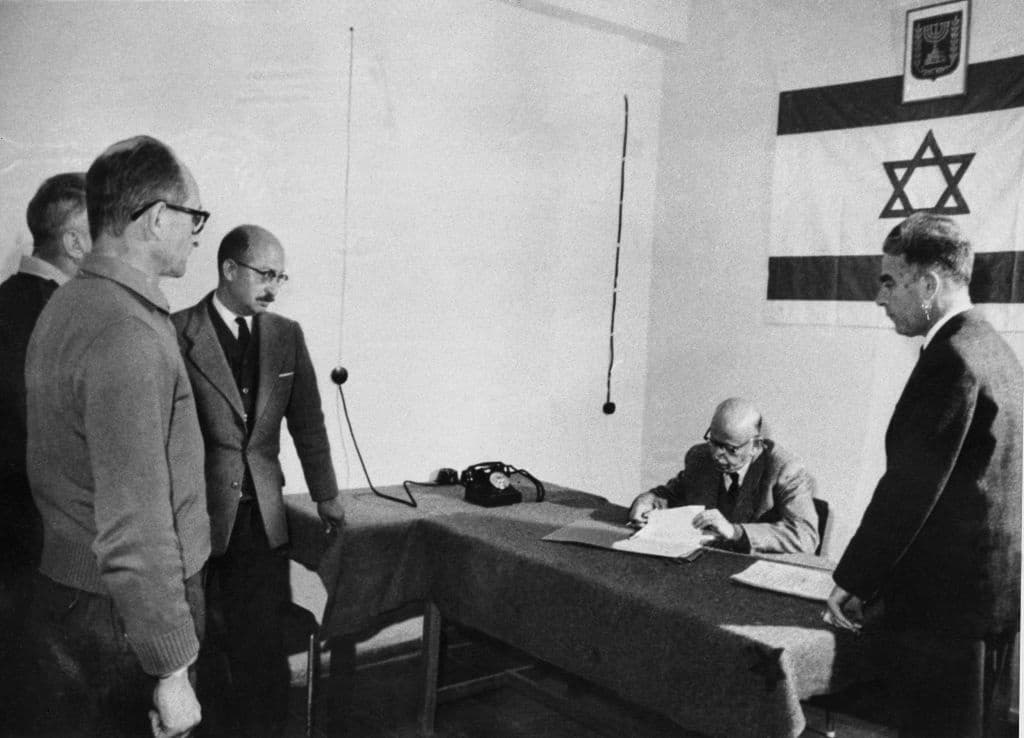
Name a daring mission, and the Mossad has done it. Hunting down Nazis? Check. Smuggling refugees from hostile countries to Israel? Yup. Going undercover to collect intelligence in enemy countries? Oh yeah. Sneaking into enemy countries to assassinate some key figures, all while dressed in drag? Yeah, we’ll talk about that soon.
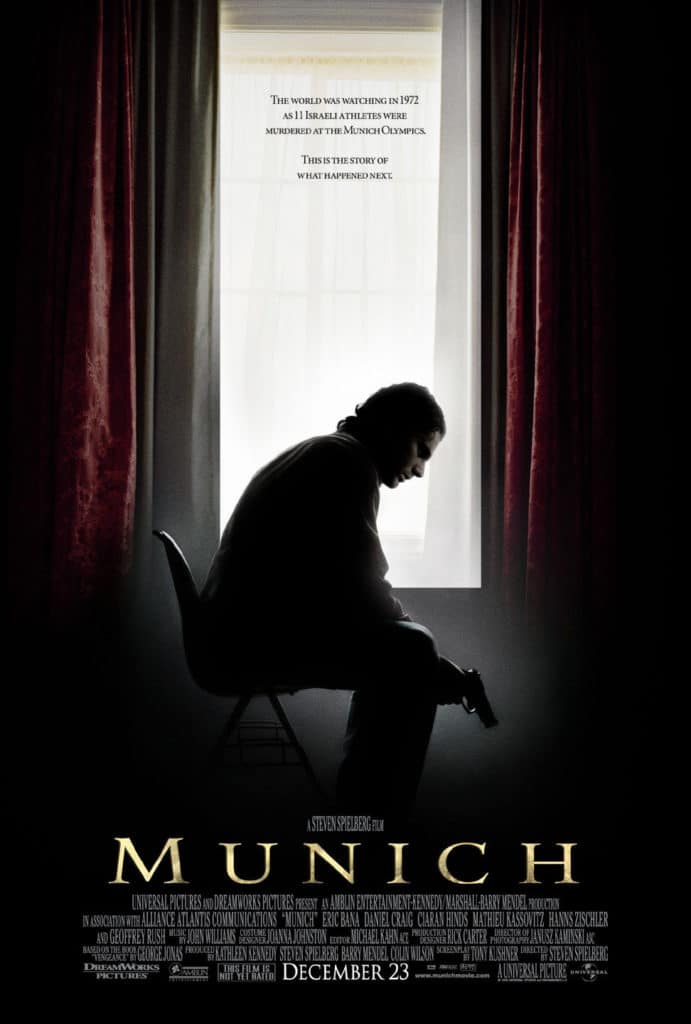
You may have noticed that a lot of the Mossad’s actions take place in less than friendly territory. Not to shock you, but the world’s only Jewish state has historically had a lot of enemies. When the Mossad was officially established in 1949, Israel had already been attacked by every single one of its neighbors, plus a couple more countries for good measure.
These countries failed at their stated goal of pushing Israel into the sea. But Prime Minister David Ben Gurion knew the next attack wasn’t far off. To survive in its rough neighborhood, the Jewish state needed to get crafty. It was never gonna be the biggest kid in the room, but it could certainly be the wisest.
So Ben Gurion established not one but three intelligence agencies, all of which operate today.

Number one: Agaf HaModiin, or AMAN, is responsible for military intelligence.

Number two: Sherut HaBitachon HaKlali, aka the Shin Bet or Shabak, is responsible for internal security.

And number three, you guessed it: Mossad Merkazi L’Modiin U’L’Tafkidim Meyuhadim, the Central Institute for Intelligence and Special Operations, known by its mononym, “Mossad.” Established to give spy novelists decades of material. And, okay, to gather intelligence and perform covert operations in foreign countries.
That’s a usefully vague descriptor that sucks all the life out of a story. “Covert operations.” But I’m using this term precisely because the Mossad operates in ambiguous territory. The agency answers to the Prime Minister, and the Prime Minister only. As Israeli journalist Ronen Bergman explains it: “Israeli intelligence from the outset occupied a shadow realm, one adjacent to, yet separate from, the country’s democratic institutions.”
By definition, the agency operates in the dark. There’s no such thing as transparency when you’re, you know, involved in international espionage.
But the Mossad doesn’t just send undercover spies or double agents into the field to gather information. Because its agents, in conjunction with the military, use the intelligence they gather. And when intelligence says that someone is trying to hijack a plane full of civilians, or blow up a bus packed with school kids, or kidnap a soldier, you don’t just sit back and let him do it. As the Talmud tells us in Sanhedrin 72a: אם בא להורגך השכם להורגו. If someone comes to kill you, rise and kill him first.
It’s an uncomfortable thought, especially for people like me.
But if Israel depended on diplomacy alone, it wouldn’t exist. Twenty-six countries don’t recognize the state and, inconveniently, some of those countries are right next door. And some of those countries – like, say, one that rhymes with Shy-ran or Shee-ran, depending on your pronunciation, we won’t name names – funnel money to terrorist groups who think murdering civilians is a righteous political statement.
A country surrounded by enemies needs to have eyes everywhere. So the Mossad collects all the intel it can. And then? It strikes.
Today, I’m going to tell you three stories of the Mossad. Stories so wild you’d think I was making them up. But I assure you, they’re all very real. And they’re all examples of the lengths that Israel will go to keep its citizens safe. Before diving in, I want to express my deep gratitude to Israeli journalist Ronen Bergman and his deeply researched, one of a kind book “Rise and Kill First.” The bulk of our research came from this book. And with that, welcome to the shadowy world of international espionage.
Welcome to the shadowy world of international espionage.
Act One: Operation Spring of Youth
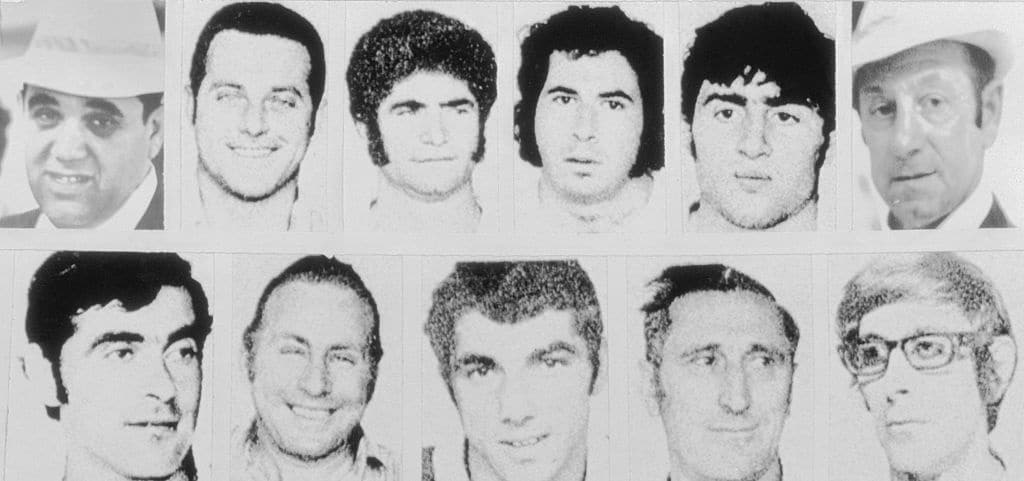
April 1973. Israel was still basking in the miraculous victory of the Six Day War. It even participated in Eurovision for the first time, earning a respectable fourth place. In other words: the pariah of the Middle East was getting its first, tantalizing taste of normalcy.
Or at least, a veneer of normalcy. Because just a year before, the world watched in stunned horror as Palestinian terrorists murdered eleven Israeli athletes at the Munich Olympics. Closer to home, the PLO and its various offshoots were still trying very hard to make good on their pledge to destroy Israel. In other words, everything felt normal til you turned on the news.
For the Mossad, of course, nothing is ever normal. After Munich, the agency was busy with Operation Wrath of God – the fittingly poetic name for the Israeli campaign to destroy Black September, the PLO offshoot whose idea of a political statement was massacring athletes on live TV.
Wrath of God hadn’t been going super well til that point. But in October of 1972, a valuable Lebanese source passed along some juicy info, like the exact locations of the PLO offices, command posts, and weapons workshops in Beirut. The home addresses of four PLO big shots. Among them was the PLO head of intelligence, who had helped to plan Munich.
Amazing, right? But the intel was just the beginning. An address is not an action plan. Are the buildings alarmed? Do the PLO honchos have security? How much time does it take to get from PLO headquarters to the evacuation point? How much noise could you reasonably make before a neighbor calls the police?
People’s lives depend on these tiny, trivial, granular details.
So the Mossad sent an operative named Yael to fill in the blanks, and she blew the entire thing wide open. She told her Lebanese friends that she had come to Beirut to research a potential TV series. Which is an excellent cover story, and not only because it makes you sound glamorous and interesting. Yael’s “research” gave her free rein to roam the city, take pictures, and casually stalk her neighbors…who just happened to be high-ranking PLO operatives.
Yael’s incredible intel answered some burning questions. But the mission was still hellishly complex. The Mossad still had to figure out how to get an elite combat unit to navigate a densely packed foreign city; silently bypass security; blow up a bunch of PLO offices; kill four of the PLO’s top brass; and escape without hurting civilians or attracting unwanted attention.
So the IDF called in future PM Ehud Barak, then the commander of Sayeret Maktal, the army’s most elite force. While Barak’s later political career was quite divisive, everyone agrees that he was a unique military genius. His plan was fittingly simple. Fifteen men. Multiple targets. Get in. Shoot. Collect documents. Detonate. Get out.
Oh, and half the force would be dressed like women so as not to arouse suspicion.
Yep, you heard that right. A pack of burly dudes walking around at 11pm? That’s sus, as the kids say. But a few couples, arm in arm? They wouldn’t warrant a second glance. Well, hopefully. Because some of these guys were not pretty.
Barak’s unit wasn’t exactly thrilled about this plan, and not just because it required them to wear heels. Amitai Nahmani and Amit Ben Horin protested that they hadn’t joined Sayeret Matkal to become assassins.
But instead of rebuking them for questioning his authority, Barak applauded their doubt. He later said that he wanted “men with opinions, men who ask questions, who are not satisfied with the mere command to execute but also demand to know the logic behind it.”
Now, this is me, editorializing from my proverbial armchair and my literal mic, but I’d also imagine that Barak appreciated his soldiers’ finely honed moral compass. Taking a life is no small thing, no matter how much blood is on your enemy’s hands. And if I were a commander of a secret assassination, I’d take comfort in knowing that my soldiers understood the weight of the mission. If nothing else, a reluctant assassin is unlikely to hurt a civilian.
Eventually, Barak convinced the two men. Operation Spring of Youth was officially a go.
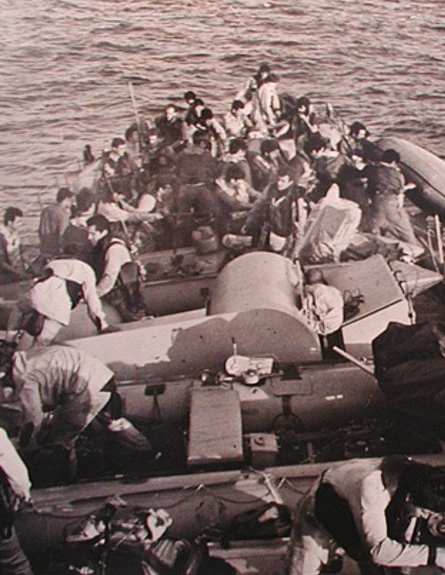
On April 9, 1973, a team of Israel’s most elite agents floated silently towards a private beach in Beirut. And once in Lebanon, the commandos split into groups. One group would eliminate the PLO’s offices. The other would eliminate the PLO’s men.
Arm in arm, half in drag, the assassins wandered Beirut’s luxurious neighborhoods. Barak later recalled that he had never seen such a beautiful city. It’s kind of astonishing to me that he was able to notice the architecture. But the commandos were supremely confident in their intel.
Here’s commando Uri Milstein recounting his experience as one of the assassins:
“I want to emphasize that we had excellent intelligence. I have never had intelligence this good – not before this mission, and not after. Because of Yael, and another agent who was also in the area and lived close by. The information was incredible. I was in shock. We knew about their bodyguards and the building’s concierge and the neighbors…”
The mission was quick, just as Barak had planned it. The commandos bypassed PLO security, which was – literally – sleeping on the job. Within minutes, the targets were dead. But when a guard on the street woke up, the detail covering the street had to shoot him. The kill was silent… until a bullet hit the car’s horn and woke up the entire street.
With Lebanese police hurtling towards the neighborhood, the Israelis were in a race against time. They grabbed as many documents as they could from the PLO apartments before dealing with the police.
Yael watched the shootout from her window. It was over quickly. A few bursts of automatic gunfire, and the Israelis were back in their cars, racing toward the beach.
Meanwhile, across town, another unit raided a Palestinian front for the Liberation of Palestine, aka PFLP building. Unfortunately, they didn’t know the building had two security details, and before they could even enter, three soldiers were down. But commander Amnon Lipkin-Shahak refused to give up the mission. His men attached explosives to the building, and then they got the heck out.
From the evacuation point, they saw the building collapse in a spectacular plume of dust and rubble. They would find out later that 35 PFLP members had been inside.
The Middle East woke the next day to a rearranged reality.
From a Beirut post office, a foreign TV writer – aka Yael – sent a letter to a “friend” detailing the shocking events of the night before. It was horrible, she wrote… Those terrible Israelis were really here! For the first time I can see why there’s so much hatred for that country. In invisible ink, she added “Great show last night. Hats off!” Seriously, any film producers out there, call me, we’ve got to make this a movie!!
In the grand halls of the Lebanese parliament building, the entire government tendered its resignation, keenly aware of its failure to protect its people against Israeli sneak attacks. (Not to mention its failure to curb PLO activity, which would lead to a much bigger Israeli invasion a decade later – listen to last season’s episode about Sabra and Shatila for more on that.)
In Israel, Ehud Barak’s wife woke up surprised to find him fast asleep next to her, the previous night’s makeup still smeared on his face.
And in newspapers and coffee shops, radio broadcasts and living rooms, the Arab world began to grapple with a dawning epiphany. Israel, the neighborhood runt, was punching far above its weight. And it could strike anywhere, at any time.
The legend of the Mossad was beginning to form.
Act Two: The Power of “Sadness”
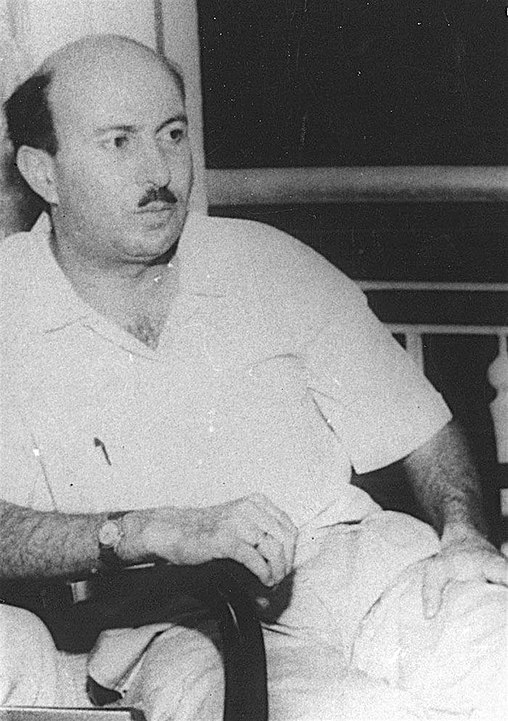
1977– The Yom Kippur war is four years in the past. Peace with Egypt is on the horizon. And in the PM’s chair sits Menachem Begin, up to his ears in PLO nonsense.
After facing a genocide, a cruel colonial mandate, a spate of riots and pogroms, and two wars that threatened to annihilate the nascent Jewish state, the newly minted prime minister was ever vigilant for the next existential threat.
Unfortunately, the Jewish state had many of those.
The PFLP had been terrorizing Israel since December of 1967. Their greatest hits included a massacre in Lod airport; the murder of 21 students in Ma’alot high school; and the hijacking of Air France flight 139 to Entebbe. (Check out that episode.)
PFLP cofounder Wadie Haddad had been in the Mossad’s crosshairs for years. But the man seemed to have nine lives. An RPG fired through his window had barely scratched him. A bomb dropped on a Beirut stadium had somehow missed him. And getting him at home seemed impossible, because his wife and young children were always around.
Plus, he lived in Beirut. And killing a high-up official deep in enemy territory was no trivial thing. So the Mossad had to get creative. They needed something that wouldn’t leave marks. Something they could deploy from a distance, without risking an operative. Something that was certain to kill.
They needed… toothpaste.
And for that, they needed “Sadness,” the code name for an agent who was extremely close to Haddad. So close that he – or maybe she! – could switch out Haddad’s regular toothpaste for an identical tube filled with a slow-acting poison. It would take months of impeccable oral hygiene until the poison reached critical mass. And though it would wreak havoc on the body, it would leave no identifiable trace.
Haddad must have had great teeth, because the poison worked exactly as it was supposed to. He lost weight. Then hair. Then blood. His doctors couldn’t find a single thing wrong with him, except for the fact that he was dying a slow and painful death. They suspected but could not prove that he had been poisoned. The PLO appealed to the Stasi, East Germany’s secret police. But even the best doctors in East Germany couldn’t save Haddad. He died in terrible pain, and his NYT obituary reported the cause of death as cancer – a convenient lie to cover up yet another example of the Mossad’s legendary, invisible reach.
Without Haddad’s operational wizadry, the PFLP simply dissolved, proving yet again that targeted assassinations were the cleanest, most moral way to eliminate a threat. No war. No civilian casualties. Just one man, killed by his toothpaste.
But not every assassination can be this clean.
Part Three: Oops.
July 30, 1997. The Oslo peace process is all but dead. (Check out our episode on Oslo for more on that.) As a string of terror attacks ripped through Israel, newly-elected Prime Minister Benjamin Netanyahu was not having it. After all, he’d been elected for his commitment to security. He needed to deal a serious blow to the Palestinian terror apparatus.
The target was Khaled Meshal, deputy head of Hamas’ political bureau, working remotely from Amman. Jordan and Israel had signed a peace agreement in 1994, but their relationship wasn’t exactly warm. The operation had to be swift and silent. No one should suspect that Meshal had died of anything but natural causes.
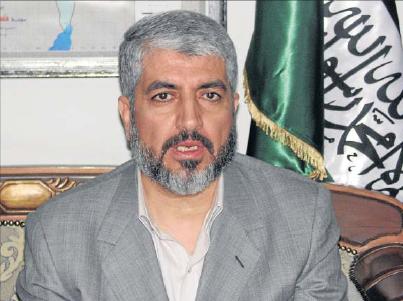
So Israeli scientists chose levofentanyl to get the job done. (If you’ve been paying attention to the opioid crisis currently devastating America, you’ve definitely heard of its analogue, fentanyl, 100x stronger than morphine.)
Once the levofentanyl was administered, Meshal’s life would be over in a matter of hours. It wouldn’t hurt. He’d just get really, really tired. His breathing would slow. His heart would stop. It would look like a heart attack or a stroke. Unusual in a 41-year-old man, but not unheard of. Just a tragic natural death.
This time, though, there was no inside man to administer the fatal dose. And Meshal was notoriously skittish about his security. He’d probably notice if some stranger stuck a needle in his arm on the street. So – proving once again that science is magic – the Israelis decided to release the poison through an ultrasound device.
Meshal would feel a puff of damp air. But when he turned around, all he’d see were two bumbling tourists opening a well-shaken can of soda. They’d apologize for spraying him, he’d roll his eyes and go on with his day, and they’d return to Israel knowing that they’d struck a major blow to Hamas. No one would suspect for a second that the two dopes with the soda can were in fact highly trained operatives administering a deadly poison.
It sounds brilliant, right? Simple. Impossible to trace. Kind of fun to practice. Unfortunately, things went south almost immediately.
The agents were still practicing when another terror attack claimed five lives. Netanyahu needed heads to roll, now. So even though they weren’t fully ready and their cover stories were paper thin, eight agents headed for Jordan.
Bad move. Because they didn’t bargain on Mashal’s daughter.
See, Mashal and his kids enjoyed a deluxe carpool situation. First, his driver dropped him off at the so-called “Palestinian Aid Center” – an innocuous cover for Hamas’ political bureau. After that, the kids would be taken to school.
But that day, Mashal’s little girl was feeling sentimental. As Mashal exited the car, she chased after him, calling “Daddy!” The driver – understandably alarmed – chased after her. It would be kind of a funny picture if not for the fact that the driver caught the Mossad agent standing directly behind his boss, arm raised to deal the fatal blow.
Of course, the driver had no idea that the agent was wearing an ultrasound device filled with poison.
He just thought the guy had a knife.
So he shouted “Khaled!”
Mashal turned around. The agent, panicked, sprayed him in the ear. Mashal looked at the agents. The agents looked at him.
And then they turned around and ran like hell.
In a spectacular bit of bad luck, a Hamas courier named Abu Seif just happened to walk by as this was all going down. He chased the agents down Amman’s narrow streets.
But it was two against one. The agents should have knocked him out and run away. But – maybe because of the adrenaline – they just kept walloping him. And because downtown Amman was apparently lousy with Palestinian operatives, another former PLO guerilla fighter was passing by in a taxi as the agents beat the crap out of Abu Seif.
He took them to the local police station. And they went quietly because they had to. It was either the Jordanian police station or a death by an angry Jordanian mob.
At the police station, the agents pretended to be Canadian tourists who had fallen afoul of some random hooligan. But after ten minutes with the Canadian consul, that cover story fell apart like wet tissue paper.
The jig was up. And the Israelis were screwed. Hamas, moving fast, had already put out a statement that the Mossad and the Jordanians were in cahoots. Bad news for the king of Jordan, whose relationship to the Palestinians can best be described as “uneasy.”
Israel had been asking its eastern neighbor to do something about Hamas for years. But the sheer number of random Palestinian operatives in this story should demonstrate that the Jordanians had been less than effective in routing Hamas from its borders.
So now Israel had a big problem. If Mashal died, Jordan would burn. Its two million Palestinians would make sure of it. If King Hussein wanted to hold on to his crown, he’d have no choice but to publicly execute the agents. Plus, the king strongly suspected there were additional operatives in his country. And it didn’t take a genius to figure out they were holed up in the Israeli embassy…
The Israelis had a choice: let Mashal die, condemning their own agents to death.
Or hand over the antidote and ferry their people out of the country, stat.
If you were the prime minister, what would you do?
Well, in the words of Moshe Ben-David, chief intelligence officer of the Mossad’s special operations division, “There’s no room for feelings in this kind of situation.” The Israelis handed over the antidote. Mashal recovered quickly. And the two agents came home, bruised but alive.
But King Hussein was still royally peeved. He suspended all ties with Israel, leaving six Israeli agents trapped in the embassy.
And he was demanding a stiff ransom for their release. He wanted to swap them for a number of Palestinian prisoners, some of whom had Israeli blood on their hands. Among those prisoners was Hamas founder and spiritual leader Sheikh Ahmed Yassin. Quadriplegic and half-blind, Yassin didn’t look like anyone’s idea of a hard-boiled terrorist. But looks are deceiving. He had masterminded a number of particularly heinous attacks and was serving a life sentence. Yet Israel released him. All to get back six operatives.
It’s a sadly familiar calculus, because the Israeli government does not leave its people behind. But that doesn’t mean Netanyahu was happy. In one fell swoop, the Mossad had burned two agents, revealed some of its fancier tricks, pissed off both Jordan and Canada, and released several known murderers.
Oh, and as of 2022, Mashal is still alive. To add insult to injury, after his release, he spent thirteen years as the head of Hamas.
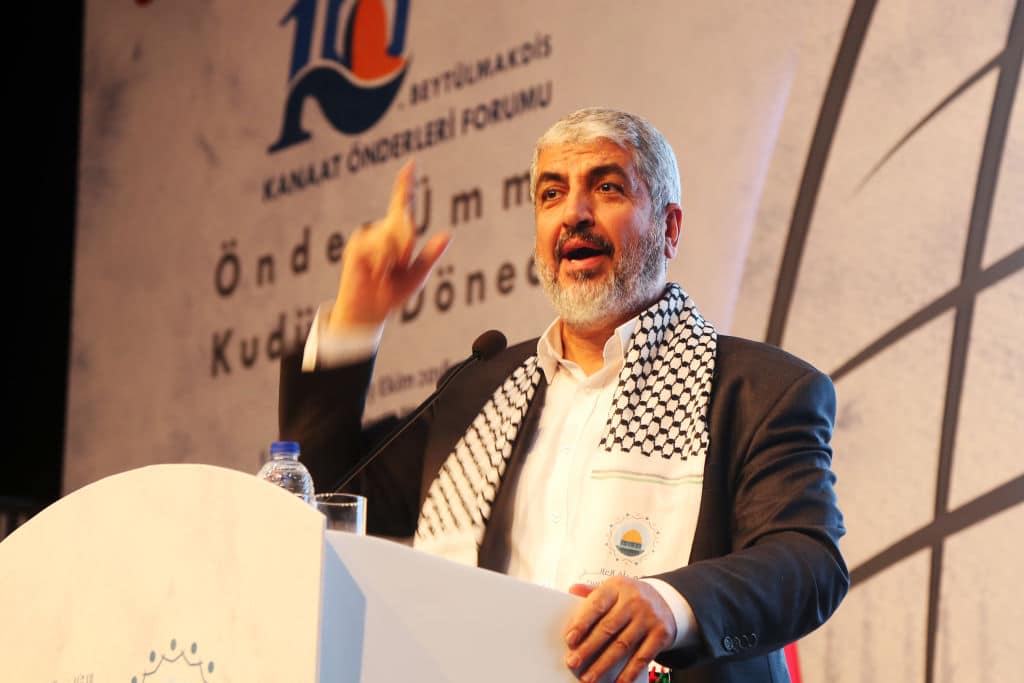
Still. One bungle can’t stop the world’s best intelligence agency. To this day, targeted assassinations remain the Mossad’s most reliable weapon.
Above is Ram Ben Barak, former deputy director of the Mossad, in a 2018 documentary called Mossad: Imperfect Spies. “Look at what’s happening in the world. You’ll see that all conventional wars end very badly. Many of the targets can be achieved in different ways. In clandestine ways.”
Because…you can choose to see targeted assassinations as a moral gray area. After all, it’s an extrajudicial killing, coming when you least expect it.
Or you can choose to see targeted assassinations as the most moral in a series of bad options. Because if it’s between a targeted assassination and war – and make no mistake, the PLO and PFLP and Hamas were all engaged in a war against Israel – then assassination wins, every time. One person dies, instead of hundreds. One building is destroyed, instead of dozens. Civilian casualties are minimized. And the risk belongs to the secret agents, carrying the safety of an entire state on their shoulders.
So those are a few stories from inside the Mossad. If you want more, and I hope you do, check out Ronen Bergman’s awesome book, Rise and Kill First.
Five fast facts:
- Keenly aware of Israel’s vulnerability, Prime Minister David Ben Gurion established three intelligence agencies in 1949: AMAN, Shabak, and Mossad. Mossad – which focuses on covert operations outside of Israel – answers only to the PM, raising ethical questions about the agency’s MO.
- Mossad’s weapon of choice has often been targeted assassination, which is quicker, cleaner, and safer than waging a conventional war – especially because terror groups are not a conventional target.
- Some of Mossad’s targeted assassinations are a spectacular success. During Operation Spring of Youth, future PM Ehud Barak led a small strike force into the heart of Beirut, where they took down three high-profile PLO members as well as crucial PLO infrastructure. In one of those “truth is stranger than fiction” twists, half his men were dressed as women, so that no one would suspect a gang of dudes walking through Beirut at night.
- Other missions require great creativity and advanced technologies. For example, Wadi Haddad, the co-founder of radical terror group PFLP, had managed to escape multiple assassination attempts. So Mossad put a bioweapon in his toothpaste. After his death, the PFLP disintegrated.
- Sometimes, assassinations don’t go as planned. Perhaps the most famous fumble was the attempted killing of Khaled Mashal, the Hamas bureau chief (and future head of the organization). The Israelis deployed incredible creativity and technology, but a lack of planning and some extraordinary bad luck turned the mission sideways. As a result, eight Mossad operatives got stuck in Jordan, and the Israeli government was forced to hand over the antidote and release a number of high-profile terrorists from prison in exchange for their return. It was a rare and embarrassing bungle for the Mossad.
Here’s one enduring lesson as I see it.
Human beings tend to glamorize dangerous situations. We’re thrilled and impressed by unlikely military victories, by covert operations, by the simple brilliance of a well-executed plot.
But behind the surface-level glamor, there’s something really sad about the fact that we use our amazing, complex brains to think up ways to kill each other. Imagine how much better the world would be if we were able to channel all this bravery and resourcefulness and calculated risk-taking into something else. Art, for example. Or biomedicine. Or easy ways to make potable water accessible to everyone in the world.
I know. I’m about two seconds away from breaking into a very off-key rendition of “Imagine.” Don’t worry, I’m not gonna torture you. But I do want us all to acknowledge two complementary truths.
The first is that in an ideal world, the Mossad wouldn’t need to exist. And the second is that my god, I’m glad it does.
You can and should ponder the ethics of a targeted assassination. Of bioweapons. Of enticing agents to betray their countries. Of entering sovereign countries uninvited and killing its high-profile residents. And all of those questions are valid, and whatever response you have to them is valid too.
But I hope you’ll remember the following, as you’re considering the ethics of a targeted assassination.
A government has a responsibility to keep its people safe. And as a nation, we’re still getting used to the idea that we might have some power after 1,900 years without collective power. If that power is deployed carefully, strategically, with the intent of keeping us safe, then I am comfortable standing in the gray area. I actually love it. And I’m grateful, and I think we should all be grateful, for all the agents who shoulder the burdens and make the tough decisions that we might not be able to make.